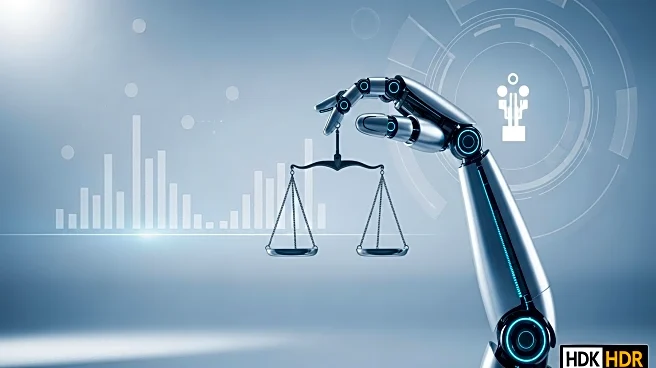What is the story about?
What's Happening?
SAP CFO Dominik Asam has indicated that AI will lead to a reduction in workforce as automation increases efficiency, allowing the company to maintain output with fewer employees. Asam emphasized the importance of correctly implementing AI to avoid potential business catastrophes. SAP, a $320 billion software firm, is focusing on optimizing processes and investing in future capabilities as AI and cloud technologies transform the industry. The company plans targeted measures affecting 1-2% of its global workforce while investing in training programs and new hires in growth areas.
Why It's Important?
The integration of AI in business operations is reshaping corporate workforces, potentially leading to significant job reductions. While AI can enhance productivity and efficiency, it poses challenges for workforce management and requires careful implementation to avoid negative impacts. SAP's approach highlights the broader trend of companies reevaluating workforce needs in light of technological advancements, which could have significant implications for employment and economic structures.
What's Next?
SAP will continue to optimize its workforce and invest in AI and cloud technologies to maintain competitiveness. The company plans to implement targeted workforce measures while focusing on strategic investments in growth areas. As AI becomes more prevalent, SAP and other companies will need to balance technological advancements with workforce management to ensure sustainable business practices.
Beyond the Headlines
The shift towards AI-driven operations raises ethical and societal concerns about job displacement and the future of work. Companies must navigate these changes carefully to avoid exacerbating inequalities and ensure that technological benefits are distributed fairly. The potential reduction in low-wage jobs highlights the need for policies and initiatives that support workforce transition and skill development.















